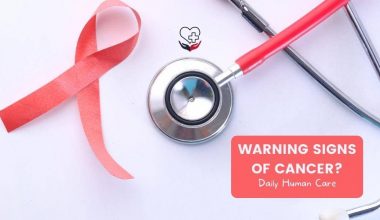This post by Daily Human Care is all about Radiotherapy, What Are the Common Side Effects of Radiotherapy and How to Manage Them?
Let’s start!
Table of Contents
RADIOTHERAPY:
Radiation therapy is a common treatment option for cancer patients. It uses high-energy radiation to destroy cancer cells, shrink tumours, and alleviate symptoms. While radiation therapy is an effective treatment, it can cause side effects. The good news is that most radiotherapy side effects are temporary and can be managed with proper care. This post will discuss the common side effects of radiotherapy and how to manage them.

Common Side Effects of Radiotherapy
Radiation therapy can cause a range of side effects, depending on the area of the body being treated and the dose of radiation used. Some common side effects of radiotherapy include:
- Fatigue: Feeling tired and lethargic is a common side effect of radiation therapy. Fatigue can be mild to severe and may last for several weeks or even months.
- Skin changes: It can cause skin changes such as redness, itching, dryness, and peeling. These changes are usually temporary and can be managed with proper skincare.
- Nausea and vomiting: Radiation therapy to the abdomen or pelvis can cause nausea and vomiting. These symptoms can be managed with medication and dietary changes.
- Hair loss: It to the head can cause hair loss. Hair loss is usually temporary, and hair will grow back after treatment.
- Mouth and throat problems: Radiation therapy to the head and neck can cause mouth and throat problems, such as dry mouth, sore throat, and difficulty in swallowing. These symptoms can be managed with proper oral care and medication.
Causes of Side Effects of Radiotherapy
While radiotherapy can be effective in treating cancer, it can also cause side effects due to the high-energy radiation affecting healthy cells in the treatment area.
The side effects of radiotherapy can vary depending on several factors, including the type and location of cancer being treated, the dose and duration of radiation, and the overall health of the patient. Common side effects of radiotherapy include skin irritation, fatigue, nausea, and loss of appetite.
In addition to these common side effects, radiotherapy can also cause long-term complications such as damage to organs, tissue scarring, and secondary cancers. These risks are mitigated through careful planning and monitoring by the healthcare team.
Managing the Side Effects
It’s important to communicate with your healthcare team about any side effects you experience during radiation therapy. They can recommend treatments and provide support to help manage your symptoms. In some cases, they may also adjust the radiation dose or schedule to minimise side effects.
Conclusion
Radiation therapy is an effective treatment option for cancer patients, but it can cause side effects. The good news is that most side effects are temporary and can be managed with proper care. If you are undergoing radiation therapy, it’s important to communicate with your healthcare team immediately. They can provide support and recommend treatments to help manage your symptoms. By taking steps to manage the common side effects of radiotherapy, you can improve your quality of life and focus on your recovery. With proper care and support, you can successfully navigate the side effects of radiation therapy and achieve a positive outcome in your cancer treatment journey.
Also, read the rehabilitation therapy.



